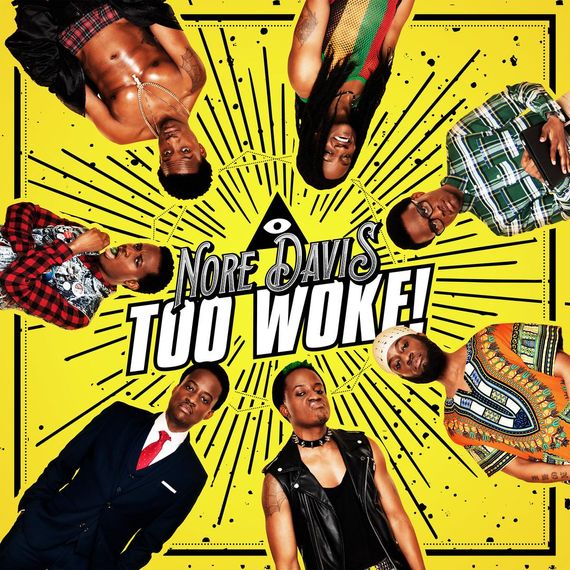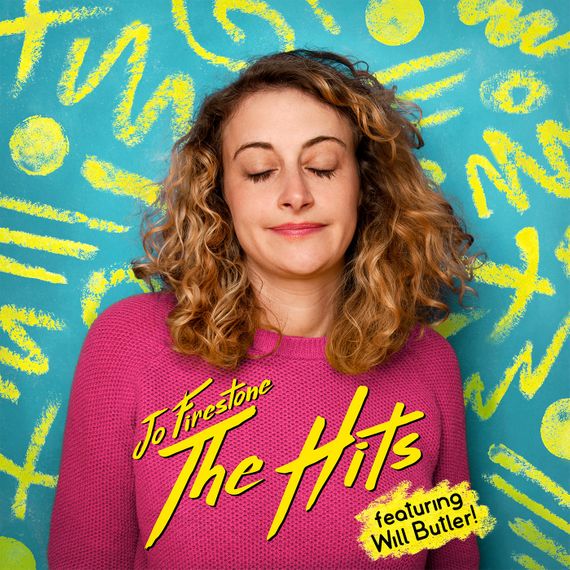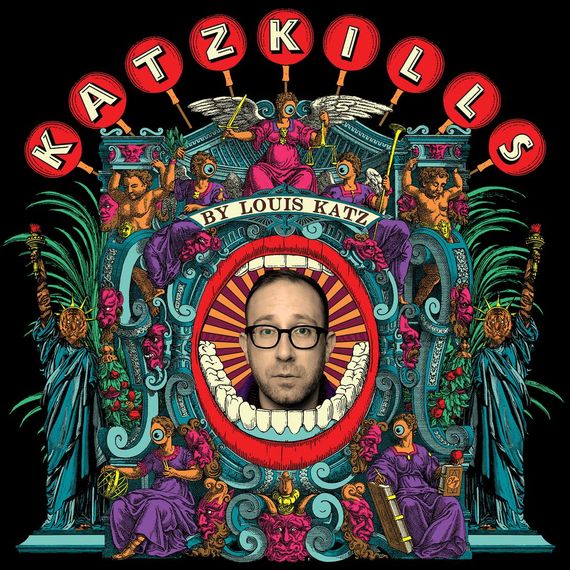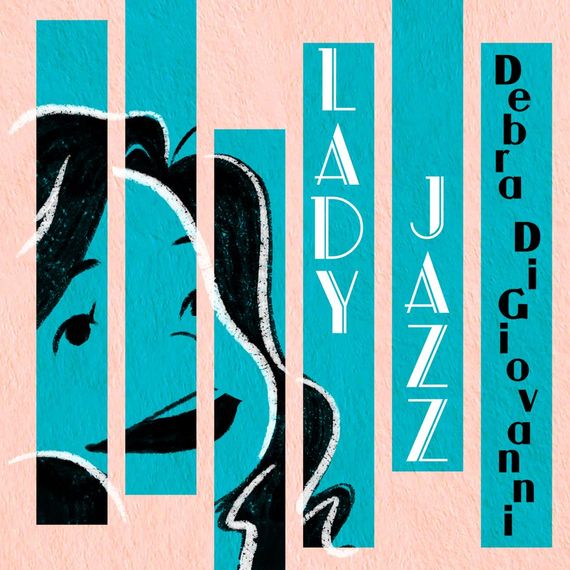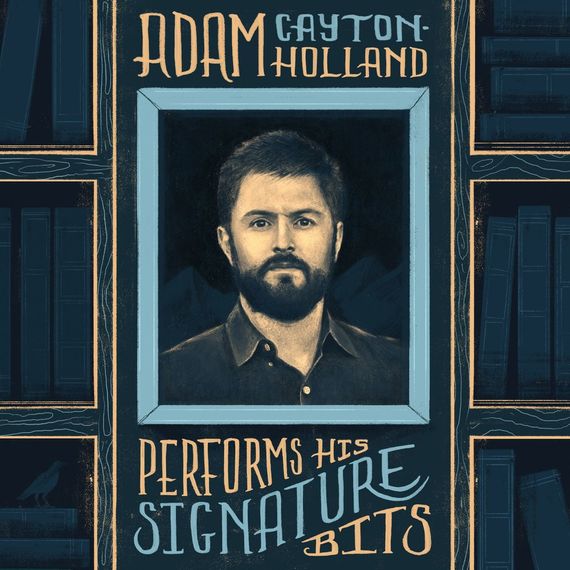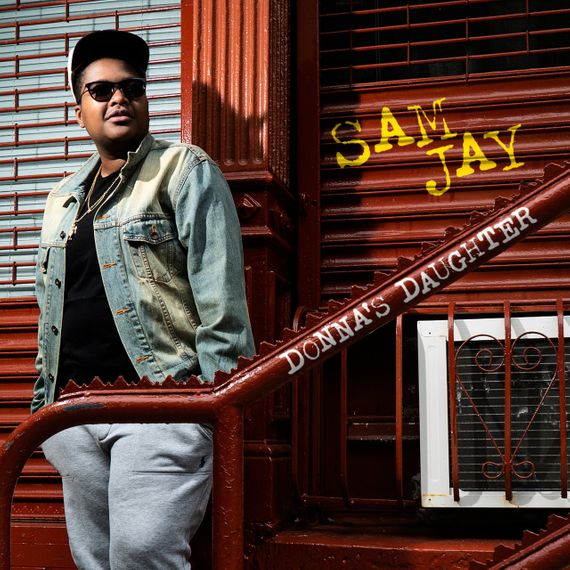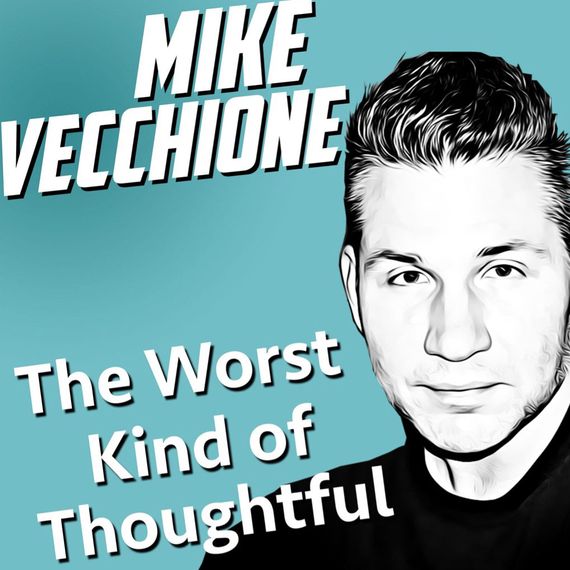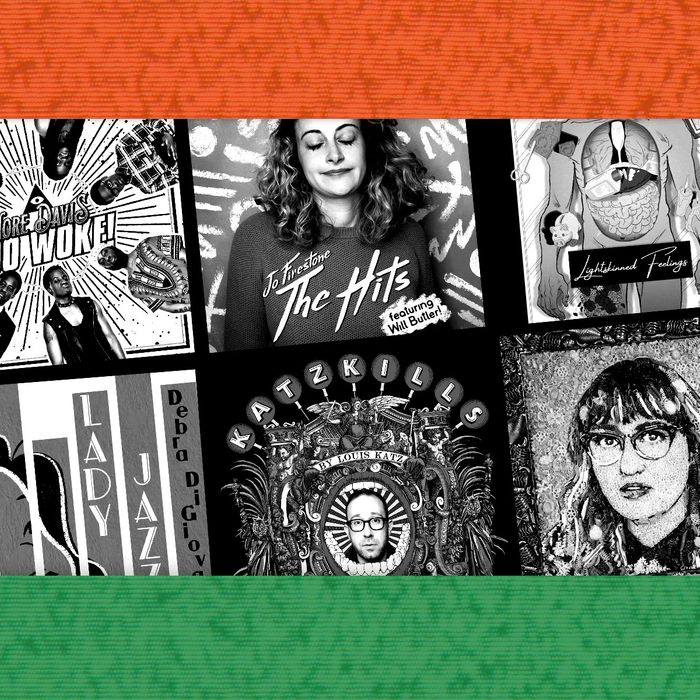
With so much focus on the unprecedented amount of specials released this year, we felt that we should take some time to shine a spotlight on the stand-up staple of the full-length comedy album. Audio albums capture live performance in a way that filmed sets don’t. Stripped of multiple camera angles, fancy production, and heavy editing, an album provides an intimacy and purity that puts focus on the two best parts of stand-up: the jokes and the audiences’ reaction to them. In that spirit, we’re highlighting albums that were released without an accompanying filmed special. A slew of brilliant comedians released some incredible albums in 2018. Here are the best ten.
10. Nore Davis, Too Woke
Although Nore Davis’s third album gets off to a bit of a slow start with some light regional fare on New York area transportation, it takes off as soon as he begins to explore his thesis of being Too Woke. He introduces the push and pull between wokeness and self-care by saying, “I’m woke, but I try not to be too woke because it’s so exhausting.” At this point, a lesser comic would have either clumsily batted around a few hot-button social issues or just moved on entirely, but for the rest of the album, Davis illustrates his own struggle in finding a healthy balance in the areas of ethical food choices, toxic masculinity, sexual orientation, and white supremacy. In each field, he presents valid reasons for why his ideologies are where they are right now and how woke culture has impacted them. For example, he was raised on hip-hop, but now has a hard time taking its brazen machismo seriously: “I don’t like that male ego, like, ‘Yeah, I stole your bitch.’ No you didn’t. I was wack and she went to you. Stop acting like she didn’t walk over there.” He also worries about the effects of trying to act too hard: “You have to cry. If you don’t you’re gonna kill somebody.” He has sympathy for those who may feel differently and never comes off as preachy, which makes the jokes that much funnier. He also doesn’t pretend to be perfect. There’s a sweet moment where he accidentally mixes up his pronouns while speaking fondly of his trans brother. It’s a nice reminder that we’re all growing and need to look for the good intentions in others.
9. Jo Firestone, The Hits
Defying her own assertion of “My comedy has a target audience: women who don’t like to have fun,” Jo Firestone’s crowd on The Hits seems to be having an absolute blast. It’s an unorthodox comedy album, finding itself somewhere between a stand-up set and a late-night talk show. Adding to that aesthetic is Arcade Fire’s Will Butler playing Kevin Eubanks to Firestone’s Leno. The two carry on occasional side conversations and team up on a few improvised musical bits, but that’s not to say that Firestone doesn’t have jokes. She glides through a colorful range of topics — from an awkward date with a much-older man to raisins to her father’s made-up currency “Daddy Dollars” — with an unconventional ease. Her word choice when describing familiar occurrences elevates her act to a level of eccentricity that is uniquely hers, but still accessible to the listener. Sex is “bouncing and bouncing” and giving someone “your juices.” Personal style choice is examined with “You guys ever get a haircut thinking it will change your looks, but then you remember you still have your fucking face?” What really makes the album special is Firestone’s crowd work. Even when things are getting weird, she maintains an intimacy in the way she interacts with the audience, leaving one to wonder why someone hasn’t given her her own talk show already.
8. Ryan Singer, Free Love
Ryan Singer is settling into life as a weirdo. He’s unmarried, has no kids, is getting into crystals, practices chaos magic, believes in Bigfoot, and wears latex gloves while eating chicken wings. All that considered, he still has a way of being quite relatable. Despite his concerns that his 42-year-old mind is starting to deteriorate (“A few months ago I forgot the word ‘rectangleʼ”), it doesn’t show in his delivery, especially in the opening track “Stay Beautiful Forever” where he lets loose a Carlin-esque analysis of modern beauty standards, delivered like an LSD-fueled QVC pitchman. Singer presents his ideas in the cadence of the world’s least annoying conspiracy theorist. Instead of the self-righteous “I don’t own a TV” types, he gives us something to actually think about. “Imagine if instead of having TVs in every room of your house you had a stranger you didn’t know telling you that same stuff. How long would you let that asshole hang out? I’m guessing maybe five minutes tops.” Not every one of his propositions hits, and his recognition of that fact provides for some wonderful moments of self-awareness: “I think this joke is just going to fade out like an old Beach Boys track from the ʼ60s.” Free Love is an album for humans made by a man who thinks there’s a strong chance we might all be robots.
7. Langston Kerman, Lightskinned Feelings
Lightskinned Feelings is an incredibly strong debut from L.A.-by-way-of-Chicago comedian Langston Kerman. The audience at the San Francisco Punchline appears to have been the perfect target for his material, which primarily focuses on his experience as a mixed man in 2018. His black mom and white dad have led him to toy with the personal label of racially “undecided,” which gives him the ability to examine ethnicity from both sides of the court. He’s able to speak on the hypocrisy of white people being allowed to believe in ghosts when black people aren’t even allowed to believe in police brutality, all while he simultaneously proclaims his love for the Gap and Say Yes to the Dress. His takes on current politics are cushioned with a delightful absurdity, as can be heard in the bit where he imagines what should have been a goofy, ironic trip to see the Baha Men in concert getting weighed down by the groups’ insistence on stopping the show to discuss the inhumane treatment of dogs. Throughout the whole album, there are lines like, “I feel like I found that special someone that makes me want to buy a second towel,” that prove that Kerman’s strength lies as much in his storytelling as it does in his ability to paint a bigger picture with just a few simple words.
6. Emily Heller, Pasta
While listening to Pasta, it becomes immediately apparent why Emily Heller has been tapped to write for breakout shows like HBO’s Barry. She’s a gifted joke writer who approaches her themes from “Why didn’t I think of that?” angles. Her word economy results in memorable lines like, “I met my boyfriend online. It’s where I do all my shopping.” Every joke is recited with a confident bite that is hard to deny. While self-deprecation is a tool for many comics, Heller leaves that on the shelf in favor of her own brand of shameless honesty: “At the age of 32, I was diagnosed with Attention Deficit Disorder. Maybe soon I’ll get my braces off, my period, who knows? But I’ve been reading more about it in very short spurts.” She’s also comfortable letting the audience get inside her head, a place where she creates things like a new theme song for Frasier set to the theme song from Friends. The only bad part about listening to Pasta is realizing that you weren’t there to receive one of the custom cards she gave the audience so that in the instance that their purse or wallet is lost or stolen the finder/thief would be able to identify the owner as a fan of Heller’s and either return the wallet or use the money within to purchase her album.
5. Louis Katz, KATZKILLS
KATZKILLS, Louis Katz’s follow-up to the delightfully filthy If These Balls Could Talk, is a raucous comedy party. There are plenty of quick, quotable dirty jokes that strike an odd balance between lowbrow and highbrow, but what really stands out are the longer bits that allow us to look at the world through Katz’s eyes. He has a way of getting frustrated at seemingly innocuous things, to the point that you, too, get pissed, even if you didn’t agree with him during the setup. By the end of the album, you’ll hate cake, question the classification of tomatoes, and think lingerie is bullshit. There are several beautiful moments where Katz pushes the audiences’ boundaries and the audience holds back, only releasing a smattering of uncomfortable laughter. Katz takes these opportunities to turn their judgment back on them. For instance, he describes an intimate encounter wherein his partner tells him he “fucks like a black man.” After acknowledging the silence, he says, “I don’t know if this makes a difference to you, but she was black. I know this whole time you were picturing me with a white woman. That’s because you’re all fucking racist.” It gets a huge pop, but he sees the opportunity for more jokes. “That’s right, she was black the whole time. This joke has a surprise ending like The Sixth Sense or The Cosby Show.” Applause break. But he’s still not done. “It’s still kind of weird for a black woman to say that. What did she think it was going to be like getting fucked by a white man? Did she think I was going to embezzle from her retirement fund?” Katz stacks his jokes high and still manages to dunk over nearly every single one.
4. Debra DiGiovanni, Lady Jazz
Two minutes into Lady Jazz, you start to wonder if Debra DiGiovanni can maintain the frenetic energy that she comes out of the gate with. Spoiler alert: She totally can. Her delivery feels like she’s been caught up in a Speed-like scenario where if she dips below a certain pace, the entire venue will explode in a ball of fire. The vibe is contagious and engaging, with the only downside being that she shifts so quickly from topic to topic that there is little time to process what you’ve just heard. It’s admirable, though, because while most comics present their punch lines on a platter and wait for a second after lifting the silver lid, DiGiovanni just drops her joke on your table (“I did lose a little bit a weight recently, but then I found it again. It was in the fridge”) and moves on without waiting for your response. In the tracks “Here’s Something — Parts 1 & 2,” she covers the terror of choking alone, judging weak handshakes from men, confusing motorboating with waterboarding, Ancestry.com, why crying is more efficient than masturbating, how feminine jizz should be called jazz, and about a dozen other thoughts she has spinning in her head. Lady Jazz is a 54-minute almanac of semi-practical wisdom and life lessons that deserves — and probably requires — multiple listens.
3. Adam Cayton-Holland, Performs His Signature Bits
In a performance frequently interrupted by the sound of a bocce game overhead the stage of Brooklyn’s Union Hall, Adam Cayton-Holland displays one of his greatest strengths: presence. He’s there, finger on the pulse of the room, repeatedly taking pause between his reference-heavy bits to address the low rumble of wooden balls. It’s clearly not the ideal setup for an album recording, but Cayton-Holland is able to mine the distraction for bonus laughs without missing a beat. It makes you feel like you’re there, which is a major mark of a good comedy album. His other skill is spinning a primarily vanilla lifestyle into elaborate, ridiculous tapestries of 30-something white male ridiculousness. He’s got a wife, three dogs, and a modest Ford Escape. He listens to ʼ90s rock radio and enjoys bird-watching. On paper that sounds quaint at best and boring as hell at worst. However, this is the life he was destined for, and he has a gift for making it absolutely hilarious with the help of a healthy dose of Surrealism. Case in point, the 11-plus-minute-long track “The Ballad of Jake the Roadie.” Cayton-Holland begins by positing that the Rock and Roll Hall of Fame would be more interesting if it were staffed by aging roadies. He takes on the character of Jake, a ragged, graying, ponytailed tour guide who can’t help but slip into scandalous tales of traveling with bands like Stone Temple Pilots, Slipknot, and the Allman Brothers. For the next few minutes, he jumps back and forth between contemporary jokes about his own life in Colorado and more wild stories from Jake. It’s an expertly crafted juggling act that ends well before the gag gets old and — like the whole record — leaves you wanting more.
2. Sam Jay, Donna’s Daughter
In one of the most fascinating listens of 2018, Sam Jay uses Donna’s Daughter to get ultrapersonal about domestic violence, gender roles, queer progress, and her reluctant admiration of Trump. Recorded during a big career year and not long after her divorce, the album is a snapshot of Jay displaying her unique truths with a serrated determination. It’s peppered with dreamy hip-hop interludes and recordings of private conversations that enhance the authenticity of what she’s saying onstage. She employs a loose, nearly stream-of-consciousness delivery to tackle premises in a way that defies popular thought on what is and isn’t appropriate. She’s able to do this because as a comedian, she hasn’t just observed these things, she’s lived them. The fact that these are her real experiences means that she can talk about them with a warts-and-all thoroughness that is painfully honest and wildly compelling. The account of a physical altercation that occurred toward the end of her and her wife’s marriage is the type of story we don’t get to hear often. Jay knows this and uses it as an opportunity to hilariously examine gender norms, gay stereotypes, and civil rights. This album is refreshingly unpolished and deeply personal. For Sam Jay, the laughs on Donna’s Daughter are both cathartic and much deserved.
1. Mike Vecchione, The Worst Kind of Thoughtful
By the numbers, The Worst Kind of Thoughtful has 35 tracks and at least five or six times as many jokes. If Vecchione’s pacing were any slower, or if he spent more than mere fragments of a second to let the audience breathe, this would have been two albums. But instead, he opts for a rapid-fire delivery, swiftly moving from joke to joke and hitting his punch lines like a boxer working a speed bag. In terms of topics, the album may seem like old hat. Public transportation, dating apps, food, and aging are well-tread territories. But what breathes life into these themes is Vecchione’s prolific writing, biting wit, and droll confidence. Take for instance his Megabus chunk. He starts off with seven roasts on Megabus before launching into his own experience on the bargain people-mover. Using the people and circumstances of the Megabus as a home base, he tangentially shifts to his relationship with Catholicism, what Jesus could have done better, and meditation, all before returning to the rolling shitshow that is the Megabus. After that nearly ten-minute section is all said and done, he remarks, “I don’t have any more bus jokes. Airplane jokes it is.” In an era when terms like “post-comedy” are used to describe stand-up, Vecchione uses classic setup-punch structure to its fullest to remind us where live comedy came from and what it will always be at its core: funny for funny’s sake.


